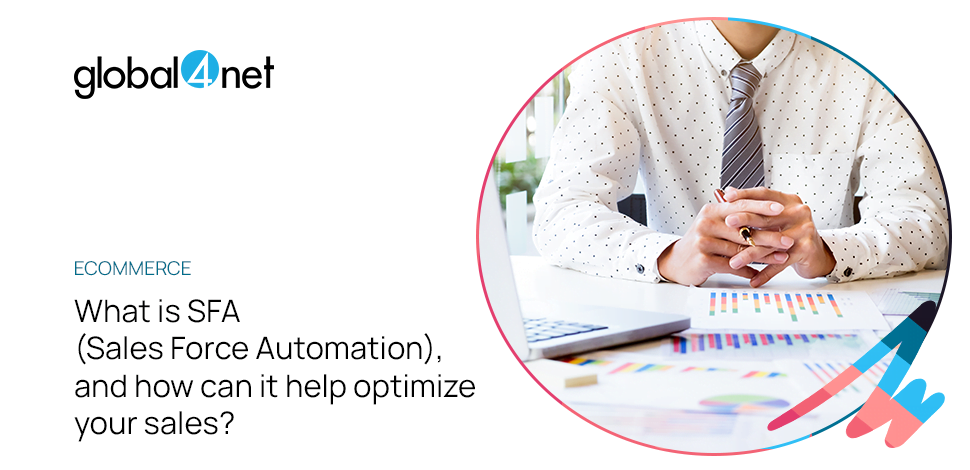ul. Strzegomska 2-4
53-611 Wrocław
NIP 8992786490
KRS 0000608120
REGON 363987723
Global4Net Sp. z o. o.
+48 71 358 41 00
© 2009 – Global4Net. All Rights Reserved.

In the highly competitive world of sales, optimizing your team’s performance can mean the difference between success and failure. Sales Force Automation (SFA) is a powerful tool that can help sales teams achieve their goals by automating and streamlining many of their day-to-day tasks, freeing up time for more important activities. In this article, we will explore the concept of this solution and how it can be used to optimize your sales team’s performance.
Sales Force Automation (SFA) refers to the use of technology to automate and streamline the sales process, from lead generation to customer relationship management. It includes a variety of features that help sales teams manage their sales pipeline, including:
These tools enable sales teams to track customer interactions, automate sales processes, and gain insight into sales performance.
By implementing an SFA system, sales teams can improve their productivity and effectiveness, reduce administrative work, and enhance customer relationships. SFA can also provide valuable data and analytics to help sales managers make informed decisions about their team’s performance and strategy.
SFA may remind you of marketing automation, but these solutions work a bit differently. The first one is focused on streamlining and automating the sales process, allowing the teams to focus on building relationships with customers and closing deals. The other one serves marketing processes, including lead generation, lead nurturing, and customer engagement. Marketing automation includes tools for:
It is designed to help marketing teams build and nurture relationships with potential customers, with the goal of generating more leads and driving revenue growth.
While there is some overlap between Sales Force Automation and marketing automation, the key difference is their focus. SFA is focused on the sales process, while MA is focused on the marketing process. However, both SFA and MA can be integrated to provide a comprehensive solution for managing the entire customer lifecycle, from lead generation to customer retention.
Sales Force Automation can also be mistaken for customer relationship management (CRM). They are often used interchangeably, but they are not the same thing. While both SFA and CRM are software systems designed to help companies manage customer interactions, there are some key differences between the two.
CRM is focused on managing customer interactions across all touchpoints, including sales, marketing, and customer service. It includes tools for:
CRM is designed to help companies build and nurture long-term relationships with their recipients, with the goal of improving customer satisfaction and loyalty.
In summary, SFA is a subset of CRM that focuses specifically on managing the sales process, while CRM is a broader term that encompasses all customer interactions.
Sales Force Automation can provide significant benefits for companies of all sizes, from small businesses to large enterprises. However, the decision to implement SFA should be based on several factors. Here are some indications that it may be time to implement SFA in your company:
Overall, if you are looking to improve your sales operations, increase productivity, and drive revenue growth, it may be time to consider implementing Sales Force Automation in your company.
Whether you are a small business owner looking to scale your sales operations or a sales manager seeking to improve the performance of your team, Sales Force Automation can be a huge benefit for you. So, choose a functional SFA platform and optimize your sales today, gaining an advantage over your competition!
Write to us




